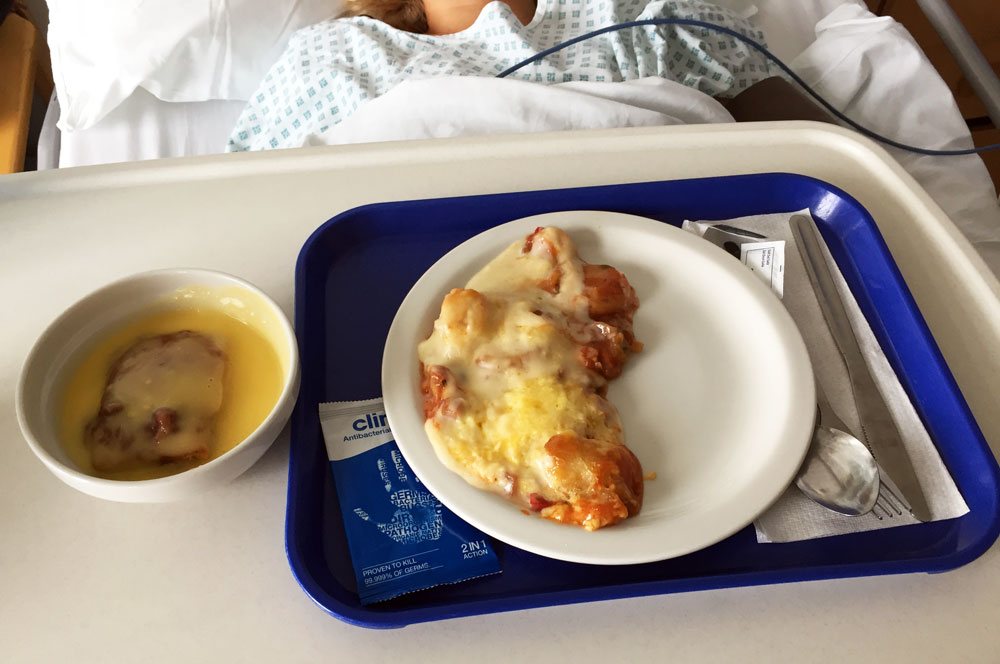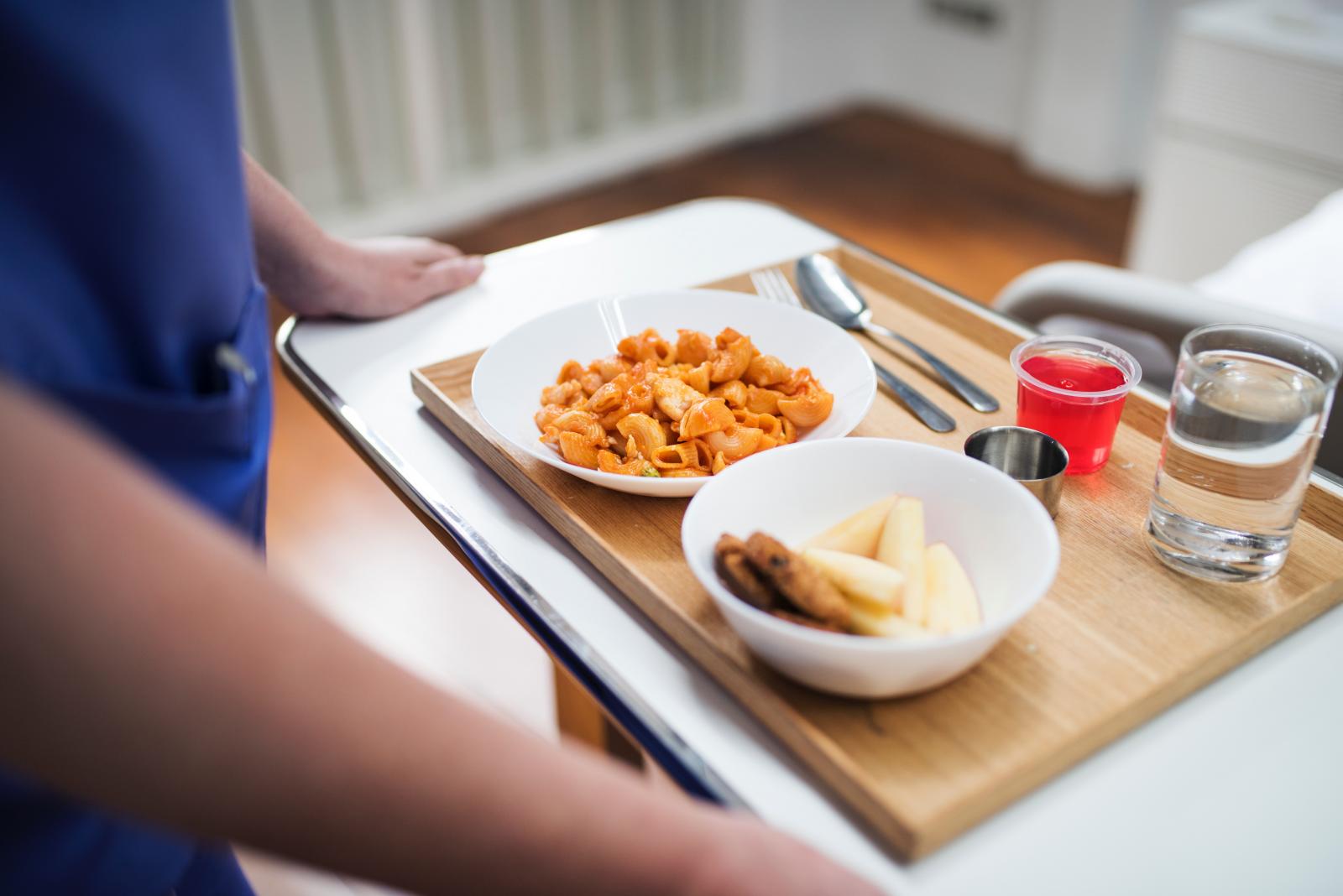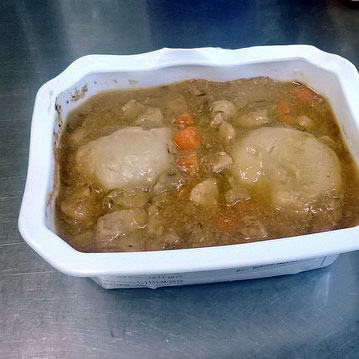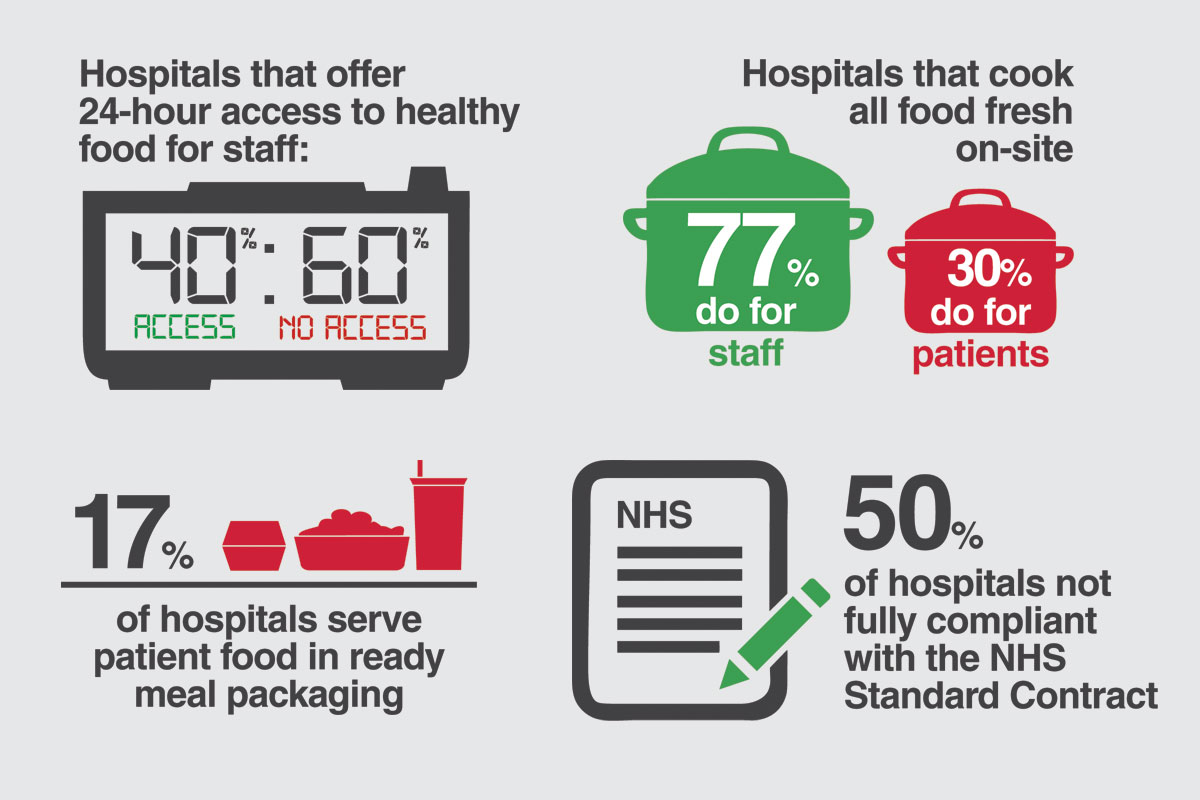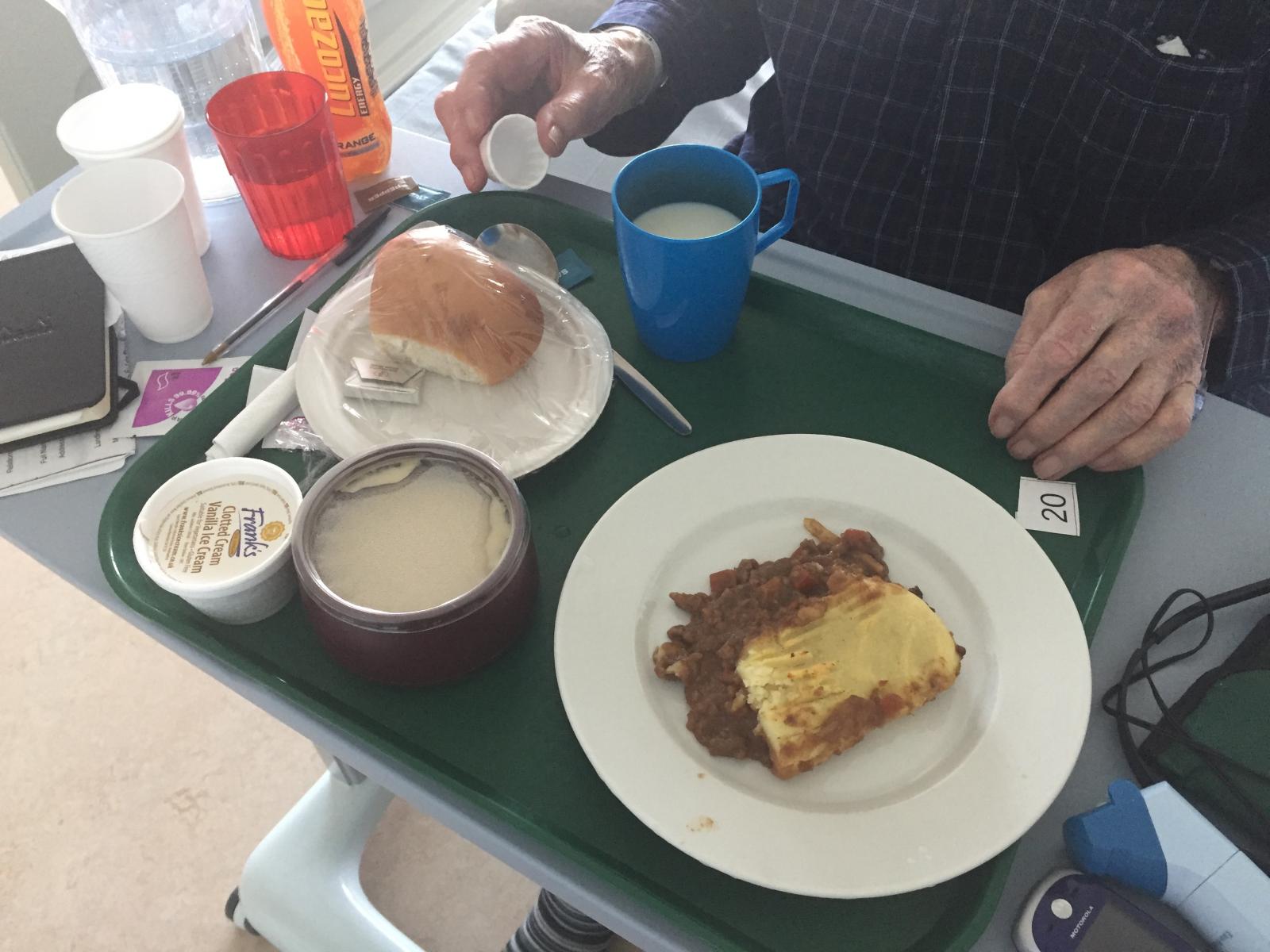Survey shows many hospital meals are unhealthier than a Big Mac
Bad food puts patient’s recovery and future health at risk
New research published today by the Campaign for Better Hospital Food reveals that many hospital meals contain more saturated fat and salt than food served by fast food chains, with some dishes containing more salt and saturated fat than the maximum recommendations for an entire day. The findings have fuelled calls for new legislation to set compulsory health standards for hospital food, similar to those that have been introduced for school meals [1].
The Campaign for Better Hospital Food analysed twenty five hospital meals which are served to patients in England [2].
Key findings
- Fifteen of the twenty five meals (60%) contain more salt than a Big Mac.
- One hospital pasta dish analysed contains more than three times the daily maximum recommendation for saturated fat and more than the daily maximum recommendation for salt [3].
- Three out of every four (73%) hospital meals sampled would be given a red (high) traffic light for saturated fat under the Food Standards Agency’s traffic light model, while just one in five meals (19%) would attract a green (low) traffic light [4].
- Nine out of twenty five hospital meals (36%) contain more saturated fat per portion than an entire nine inch pepperoni & jalapeño Pizza Hut pizza.
- One hospital chicken korma analysed contains more than six times as much saturated fat than a KFC Zinger Burger with regular fries.
Last Thursday, twenty MPs were drawn from a ballot in Westminster and given the opportunity to introduce to Parliament a Bill of their choosing [5]. Parliamentary Bills introduced in this way can become law if they receive the support of the Government.
The Campaign for Better Hospital Food, which represents eighty two national organisations [6], is calling on the MPs drawn in yesterday’s ballot to take forward the Transforming Hospital Food Bill which would set compulsory health, environmental and ethical standards for all hospital food served in England. Members of the public can ask the MPs drawn in the ballot to support the Bill by going to www.hospitalfoodbill.org.
Despite Government spending at least £50 million on initiatives to improve hospital food in the previous ten years alone [7], a report in 2011 showed that one in ten hospital meals are still thrown into the bin uneaten every year [8].
Alex Jackson, Co-ordinator of the Campaign for Better Hospital Food, said: “It’s staggering to think that sick patients could be better off eating in McDonald’s than in hospital. Without standards for hospital food, many hospital meals will remain unhealthy and unappetising to eat. We’re asking people to go to our website today to support the campaign for hospital food standards.”
Katharine Jenner, Chair of the Campaign for Better Hospital Food and Public Health Nutritionist said: "Too much salt and saturated fat in our diet is linked to heart disease and stroke, the biggest causes of death and disability in the UK. Hospitals should be setting a good example and be providing meals which are tasty, healthy and nutritious, rather than meals which could contribute to further health problems."
For more information please contact Alex Jackson on Tel: 0203 5596 777 or at alex@sustainweb.org
Notes to editor
[1] School Food Trust food standards: http://www.schoolfoodtrust.org.uk/the-standards
School Food Trust report ‘School food standards chip away at teens’ unhealthy eating’, April 2012: http://www.schoolfoodtrust.org.uk/news-events/news/school-food-standards-chip-away-at-teens-unhealthy-eating
[2] Survey details
We collected menus from seven hospitals in England to find out what meals they are serving to patients and identified similar meals from the NHS Supply Chain product list. NHS Supply Chain is the single biggest provider of meals to NHS hospitals in England. More details can be found at http://www.supplychain.nhs.uk/product-areas/catering/.
From NHS Supply Chain’s product list we randomly selected twenty five meals and traced them to their original suppliers. We were able to analyse the nutritional value of these meals using information publicly available on the websites of the original suppliers. In some cases, the supplier did not specify the total weight of the hospital meal. In this instance we calculated that the meal would weigh 400g which is the standard weight of supermarket ready meals.
We compared the results against the nutritional data of products available on the websites of Burger King, Domino's, KFC, McDonalds, Pizza Hut and Subway.
[3] Guideline Daily Amounts (GDAs) are intended to help make dietary choices. They specify the approximate amount of particular nutrients and calories required for a healthy diet. For more information please go to http://www.nhs.uk/Livewell/Goodfood/Pages/food-labelling.aspx#Gu
[4] Traffic light colour coding uses GDAs and are intended to show you at a glance if the food has high, medium or low amounts of fat, saturated fat, sugars and salt. For more information please go to http://www.nhs.uk/Livewell/Goodfood/Pages/food-labelling.aspx#Gu
[5] More details about Private Members’ Bills are available at http://www.parliament.uk/about/how/laws/bills/private-members/
[6] A full list organisations supporting the campaign is available at www.hospitalfoodbill.org
[7] ‘Yet more hospital food failure’ report 2010 https://www.sustainweb.org/resources/files/reports/GFFOM_Hospital_Food_Second_Report.pdf
[8] Screen grab from: ‘Millions of hospital meals uneaten, analysis suggests’, BBC News: http://www.bbc.co.uk/news/health-15242319
Published Sunday 20 May 2012
Better Hospital Food: The campaign represents a coalition of organisations calling on the Westminster government to introduce mandatory nutritional, environmental and ethical standards for food served to patients in NHS hospitals in England.
